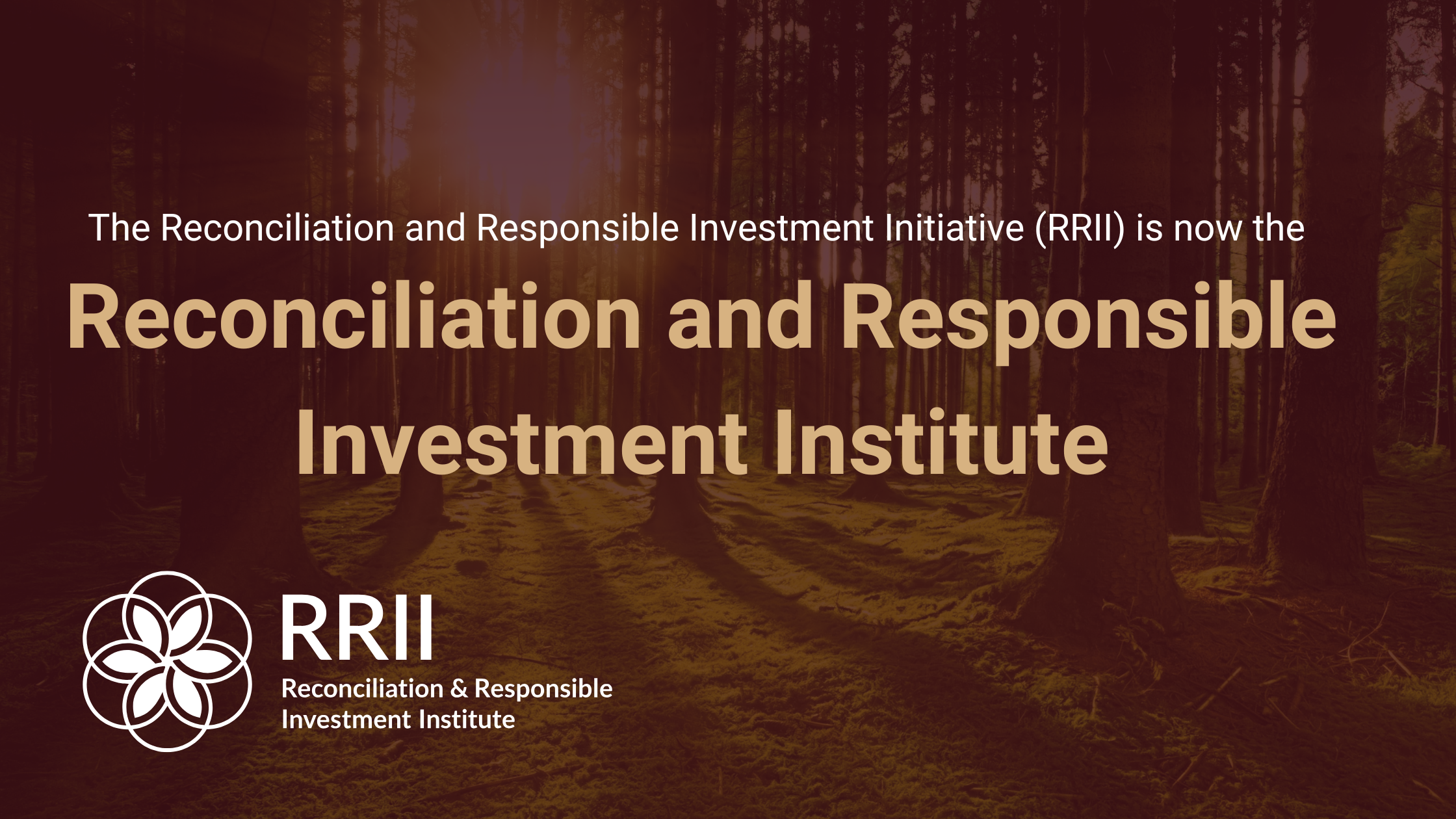By Katie Wheatley, Project Lead, Reconciliation and Responsible Investment Initiative and Anthony Schein, Director of Shareholder Advocacy
In a recent op-ed for Responsible Investor, SHARE CEO Kevin Thomas wrote about our agenda for the pandemic recovery, focused on resilience and building value for the long term. That means respecting and strengthening our commitment to reconciliation, to a climate transition, and to decent work – not casting them aside in the midst of a crisis.
Before the current pandemic arrived in Canada, reconciliation and Indigenous rights were a central theme within SHARE’s engagement program. In the past few weeks, we have seen how COVID-19 poses greater risks to Indigenous Peoples relative to the settler population as a whole. Reconciliation and Indigenous rights continue to be a priority at SHARE as we monitor corporate responses to the crisis.
We are looking closely at energy and mining companies, whose industries have been deemed “essential” by provincial and federal governments. These companies operate in Indigenous Peoples’ traditional territories, often near to their communities, and are bound by the duty to consult. From an investor perspective, the following dynamics are particularly important:
- Due to social determinants of health and underlying social and economic inequality, remote and northern Indigenous communities face heightened vulnerability to the health risks of COVID-19, as well as limited access to health services.
- Many Indigenous communities have reported that their capacity to engage with companies is limited in the current crisis. Companies should not be proceeding with formal consultation processes while those communities and governments are unable to respond effectively. Meaningful consultation is unfeasible under the current circumstances. We have also identified increased litigation risk for projects that receive approval based on consultation during the pandemic.
- The high potential for transmission from outside the community – such as with cases originating in the Kearl Lake area northeast of Fort McMurray, AB – has led to Indigenous leaders expressing concern with health and safety at work camps, and with the presence of outside construction crews and prospectors. Some Indigenous communities have restricted all outside access to their reserves and territories due to COVID-19.
- Indigenous businesses face unique challenges. As outlined by the Canadian Council for Aboriginal Business, access to financing, inadequate infrastructure, unreliable internet access, and impediments to business development imposed by the Indian Act all put Indigenous businesses at increased risk.
Corporate responses to the pandemic need to not only account for Indigenous Peoples, but to centre them.
From an investor perspective, the liabilities and risks that a ‘business as usual’ approach would pose to energy and mining companies merit attention. Will pandemic-era consultation processes stand up to public and legal scrutiny? What will the consequences be for operators who fail to protect workers and nearby communities?
To maintain social license, companies need to take a collaborative and transparent approach to decision making during the pandemic.
On behalf of our network of investors, SHARE has begun targeted engagements with some of the largest oil and gas companies to address a few of these questions:
- What effect has the COVID-19 crisis had on the company’s active consultation with Indigenous governments and communities both for new and existing projects that could affect their lands, title, or other rights? How has the company adjusted its consultation to respect the challenges that Indigenous governments and communities may face in responding to requests at this time?
- How has the company adjusted practices, closed or limited access to work camps during this time to ensure that nearby Indigenous communities are not at risk of infection from outside workers? Where operations are ongoing, how are the views and stated preferences of all nearby Indigenous communities represented in risk avoidance and mitigation plans? What specific steps are being taken to protect worker health and safety on the sites that continue to operate?
- Has the company discussed financial sustainability with Indigenous suppliers and contractors during the current financial downturn, in order to address impacts that may be more strongly felt among Indigenous suppliers and communities?
- How is the company communicating its response to the COVID-19 crisis, and particularly the abovementioned measures and considerations, with Indigenous partners and nearby communities?
SHARE is working in collaboration with our partners to identify ways for companies to operate responsibly during the pandemic and into the future, with solutions that suit Indigenous Peoples, investors, and companies alike.


